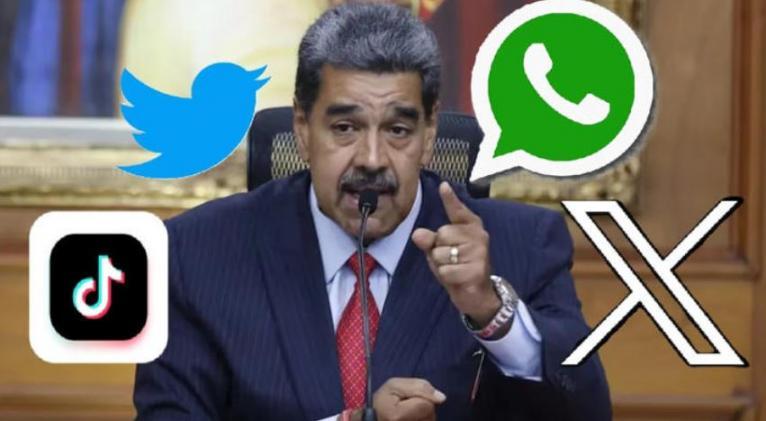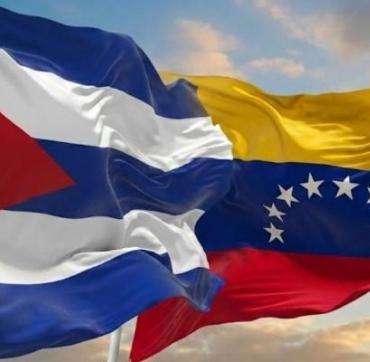Venezuela Faces Cyberattacks in all Forms
especiales

For months, Venezuela has been facing a resurgence of fourth-generation war actions written in imperial manuals, designed and directed by the US government. The pretext was missing to move on to another phase and, as on other occasions, they found it in the result of presidential elections of July 28.
The involvement of the United States National Security Agency (NSA) has been brutal in complicity with the CIA, the FBI and the large information and communication technology corporations that own platforms such as X, Whatsapp, Facebook, Instagram, Tik Tok and Google.
In addition, the participation of large media outlets at the service of capital such as CNN, AP, The New York Times, El País, ABC, Infobae, El Clarín, The Guardian, VOA and france 24, just to name a few, stands out in the current battle; international organizations such as UN experts, the discredited OAS; organizations such as the Carter Center and governments of all hues in Latin America and Europe.
But a relevant actor has been cyberattacks in all forms. We’ll be talking about this with Daniel Ramos Fernández, director of digital business at the Cuban Telecommunications Company (ETECSA) and an expert in computer systems and cybersecurity.
-What is the background to these events in Venezuela?
- Cyberattacks aimed at destabilizing and causing the collapse of the Bolivarian government of Venezuela are not something new, let’s remember the oil strike of December 2002, which damaged the computer platform, servers and management applications of the Venezuelan state oil company, PDVSA. The destruction of equipment, intervention of automated systems that guaranteed the distribution of crude oil and its byproducts, and the blocking of several essential technological services were reported, with losses close to 20 billion dollars, which was a failed measure of pressure from the Venezuelan and international oligarchy, to provoke an unbearable social upheaval, which led to the fall of the government and the resignation of President Hugo Chávez.
On January 19, 2011, an attack was reported against the website of the Bolivarian Government of Venezuela, making it inaccessible to Internet users. The Internet activist group, Anonymous, claimed responsibility for the cyber-attack, arguing “the policy of censorship and oppression of freedom of expression in the government of Hugo Chávez.”
In March 2019, there was a cyber attack against the electrical grid, where the computer system for monitoring, controlling and collecting data on the generation of energy from the El Guri reservoir was sabotaged and left most of Venezuelan territory without electricity for more than two days. Another operation was carried out in July of that year that also left serious damage to this vital infrastructure.
- And what types of cyber-attacks were most used in this conflict?
- Since the beginning of July, cyber-attacks on dozens of Venezuelan institutional sites have increased, several of which are considered critical infrastructure, such as Cantv, Movilnet, Sistema Patria, the Central Bank of Venezuela, PDVSA, the National Assembly, the Presidency of the Republic, Conviasa and the National Electoral Council, the latter with the purpose of distorting the results of the July 28 elections.
Data provided by the Minister of Science and Technology of Venezuela, Gabriela Jiménez, before the Defense Council and the Council of State of that Nation reveal that the most used type of cyber-attack was distributed denial of service (DDOS) with 65.52% of the total, followed by information theft 17.24%, DNS amplification 6.90%, route hijacking 3.45% and website crashes 3.44%.
According to the source itself, during a single incident of denial of service the volume of traffic towards operator Cantv was five times greater than the traffic supported by the links in that country. 30 million attacks per minute were reported.
The North American firm NETSCOUT acknowledged that the day after the elections there was an increase in data traffic towards Venezuela with DNS amplification type cyber attacks.
They also hijacked blocks of Cantv IP addresses to redirect traffic that was going to this telecommunications operator to the attacker's network. It must be said that a lot of money and technological resources were put into these operations.
- Through a Presidential Decree, the National Cybersecurity Council was created to confront cyber attacks, protect its technological systems and guarantee the proper functioning of all the country's command systems. In addition, several legal norms are being debated in the National Assembly to strengthen the fight in this area.
- Today, all kinds of weapons are being tested against Venezuela, including cyber weapons, to stop the process of change of the Bolivarian Revolution. Although it’s true that only 10% of cyber-attacks have been successful, this escalation generates terror, fear and insecurity in the population. This is part of the plan of those who pursue stealing Venezuelan oil at all costs.
Translated by Amilkal Labañino / CubaSí Translation Staff














Add new comment